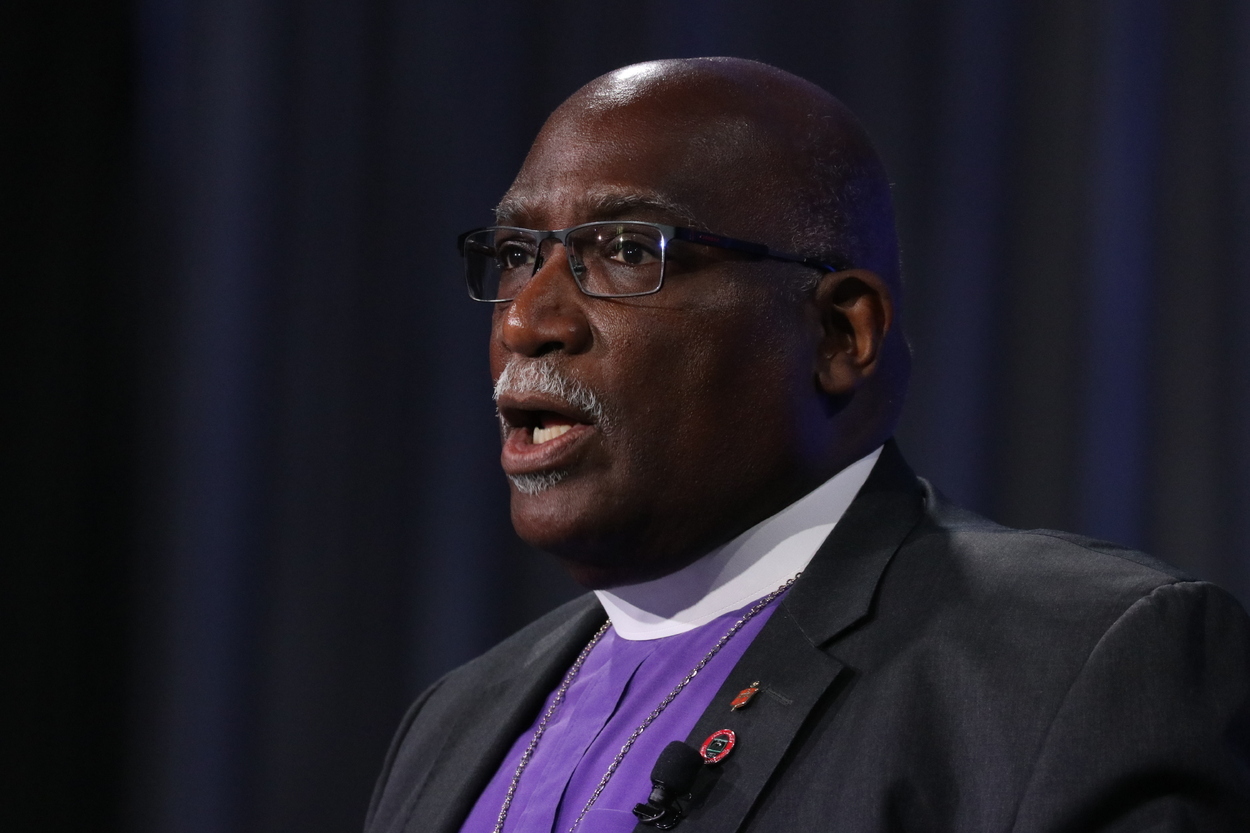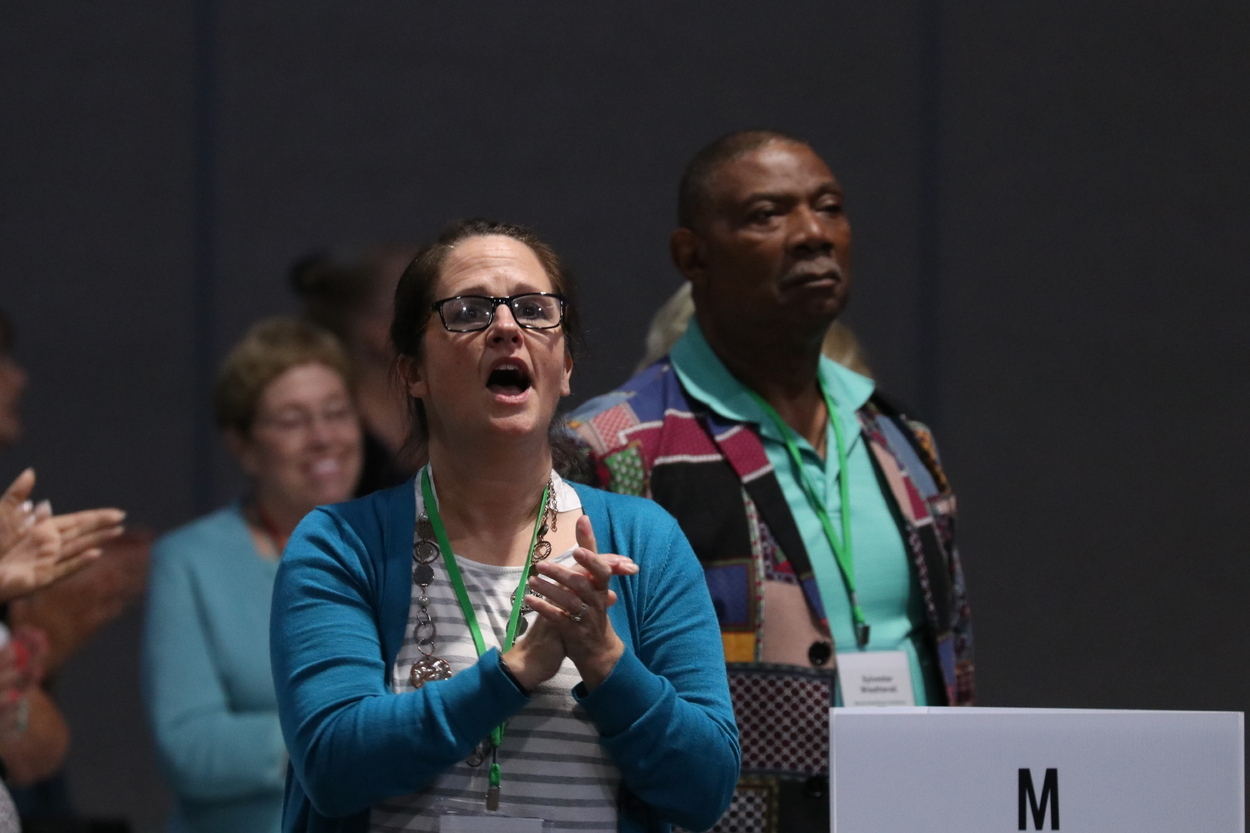
Bishop Palmer: We are beloved children of God

Bishop Gregory Vaughn Palmer delivered the sermon at closing worship. Photos by NCJ communicators.
“Is there any more important message that the church has to commend to the world than every human being is a child of God?” Bishop Gregory V. Palmer asked those participating in the final worship service at the 2024 North Central Jurisdictional (NCJ) Conference on July 13.
Drawing from 1 John 3:1-3 the resident bishop of the West Ohio Conference suggested that our key ministry is relaying that message to the world.
“What if our ministry was simply reminding everyone or awakening in everyone, especially for those who do not feel connected to God or to the created order or to the rest of the human family . . . that they are a beloved child of God? And if nothing else good happened, if nothing else came across their pathway, I believe our ministry would be effective.”
Palmer told the story of Dr. George Washington Carver, a Black agricultural scientist and inventor who promoted alternative crops to cotton and methods to prevent soil depletion. In 1890, Carver—who was born into slavery—started studying at Methodist-affiliated Simpson College in Indianola, Iowa, initially wanting to be an artist. It is there that Carver deepened his faith, and he later said about his experience: “They made me believe I was a real human being.”
Later on, his art teacher, Etta Budd, recognized his talent for science and encouraged him to study botany at what is now Iowa State University in Ames. When he began there in 1891, Carver was the university’s first Black student.
“Can you imagine what legacy and what weight he carried on his shoulders to even imagine, at any moment, that he was not fully human?” the bishop asked those gathered in-person and via live stream. “But I want you to know that narrative can be undone if church will be church.”
What if you went back to wherever you’re from and slid your mission statement to the side, he suggested to those gathered. “Our mission is to help everybody know they’re a child of God . . .beloved by God, no exceptions; loved by God, no contradictions.”
Even though we are all, individually and collectively, beloved children of God—and that matter has been settled—we keep trying to mess it up with our -isms, our “Make America Great Again,” our American exceptionalism, Palmer said.
When we assume the fullness of our belovedness, God has “good stuff” in store for us.
“I’m just happy—glad happy, hallelujah happy, full-of-joy happy—that God would call me God’s child, and I want to live into that,” he said.

Rev. Rebecca Trefz, Dakotas Conference clergy delegate sings during closing worship.
The bishop raised another important and related point: “The cancel culture is fundamentally unchristian,” he argued. “If we ain’t got no theology of redemption for the people that tick us off, that are caught up in their own -isms, that come at us sideways, then the forgiveness that we’ve seen and received . . . we’re making a mockery of it.”
He noted that it is possible for us become better every single day. God is continually wooing us back into God’s belovedness—and God has a hopeful expectation that we will grow in grace, that we will mature in faith.
“We need a theology of healing, of redemption, of reconciliation, and of new life that no matter how marred . . . how tarnished the image of the divine is in us, it’s there,” Palmer said.
We are called to watch over one another in love—and that means I give more attention to my journey than the scrutiny of your journey, he added.
“The reign of God is pressing in on us and saying now is the time, and you are the people,” said the bishop. “Live fully into your being a child of God and invite everybody around you to live into it, and together in community, in hopeful expectation, that you might be made perfect in love in this life.”
The destination is clear: It’s to be, to look, to act, and to love like Jesus, said Palmer. Sometimes we’ll get it wrong, but God will keep wooing us.
“God is able to keep us from falling, and it all is rooted in the assurance in the living of our belovedness,” he said.
View a video of the sermon here.